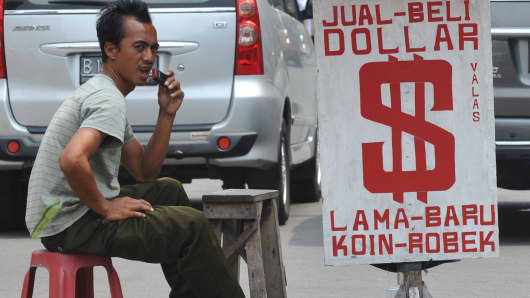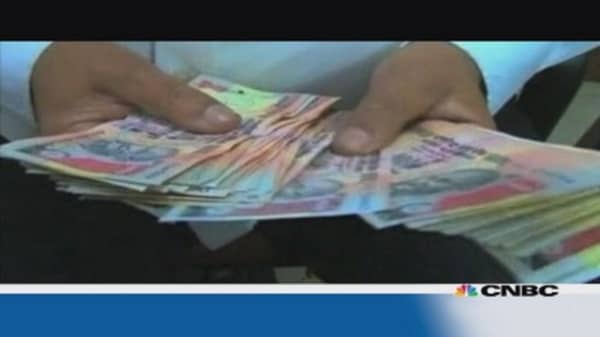Emerging markets are getting a beating right now, but the tattered asset class could be poised to become the "comeback kid" of 2014, some analysts say.
Investors with a long-term horizon should look at investing in emerging markets, analysts at Bank of America Merrill Lynch (BofAML) said in a note released on Friday, although they added that the current turmoil was a reason to be cautious heading into September.
(Read more: If August was bad for stocks, September may be worse)
"While policy makers have yet to panic sufficiently for an inflection point in global risk, an improving long-term, risk-reward trade-off could make emerging markets the comeback asset class of 2014," the BofAML analysts said.
(Read more: Will India resort to buying gold from its citizens to ease rupee crisis?)
The MSCI emerging market index has shed about 13 percent since late May and has tumbled about 5 percent in just over two weeks. The Indian rupee, meanwhile, dived to a new record low against the dollar this week and the Indonesian rupiah hit its lowest level in more than four years.





